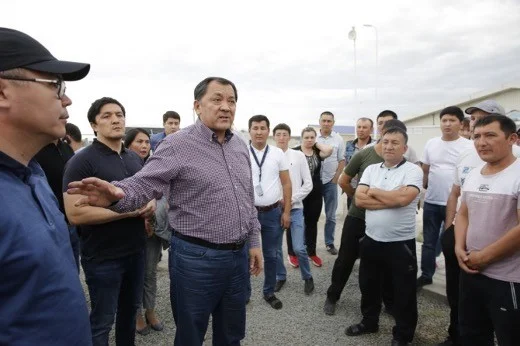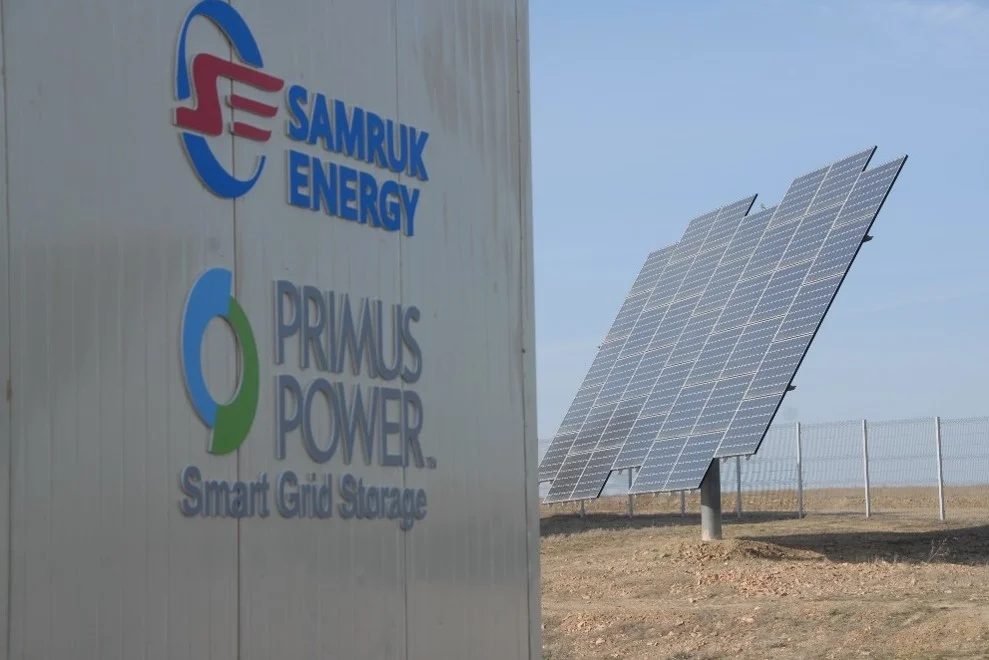Practicing CSR in Kazakhstan. Case: tengizchevroil in Atyrau region

Corporate social responsibility (CSR) holds significant potential in Kazakhstan. Initially, multinational corporations used CSR as a philanthropic tool to enter their fields of interest. Over time, it has evolved into an obligation; when the government signs contracts with large corporations, the social responsibility of these organizations to the regions they plan to enter is a major point of discussion. Since its entry into the Atyrau region, Tengizchevroil has maintained its position as a leader in corporate social responsibility.
Economic Growth and Foreign Investment:
Foreign investment, particularly in the booming oil and natural gas industries, has been the main driver of Kazakhstan’s economic growth. Since gaining independence from Soviet rule, Kazakhstan has attracted over $18 billion in foreign direct investment—the highest per capita in the former Eastern Bloc. Much of this investment has been directed to the Atyrau region.
Atyrau Region:
The Atyrau region, formerly known as Guryev, is a key player in Kazakhstan’s oil and gas industry. It borders Astrakhan district of the Russian Federation to the west, the Western Kazakhstan district to the north, the Aktobe district to the east, and extends southeast to the Ustyurt plateau in the Mangistau district. It also borders the Caspian Sea. The region spans over 118,000 sq. km, with a north-to-south border length of 350 km and an east-to-west length of over 600 km. Despite its proximity to the sea, the climate is extremely continental, characterized by hot summers (+40-42°C) and cold winters (-38-40°C).
The region is flat, with four large rivers and one lake. The Ural River, the main waterway, flows into the Caspian Sea 45-50 km south of Atyrau city. The region’s soil cover and vegetation divide it into four zones: seaside, river plain, semi-desert steppe, and sand. Forests occupy barely more than 1% of the territory.
Atyrau’s population is 543,000, representing 3.3% of Kazakhstan’s total population. The region covers 118.6 thousand sq. km, 4.35% of the country’s total area, with an average population density of 4.6 people per sq. km. Nearly half of the region’s population (200,640 people) resides in Atyrau city.
Atyrau is rich in mineral resources, particularly hydrocarbons from oil fields with associated gas. The region’s development and establishment are integral to Kazakhstan’s oil and gas history. From its origins as a provincial town, Atyrau has grown rapidly, contributing 40% of the country’s oil and 60% of its gas production.
Social and Economic Development (2011):
- Atyrau had the greatest share in Kazakhstan’s fixed investment, mainly in oil and gas.
- It ranked first in the country in terms of national wealth cost volume, with fixed assets making up over 21% of the republican volume.
- The region had the highest industrial output and the lowest unemployment rate (5%) in Kazakhstan.
- The poverty level was less than 1%, having decreased 20-fold over a decade.
- The average monthly nominal wages were 123 thousand tenge, the highest in Kazakhstan.
- The price index for food products was the highest in the country.
Egilik Programme:
The Tengizchevroil (TCO) joint venture launched the Atyrau Bonus Fund, a five-year, $50 million program, in collaboration with the Atyrau Oblast Akimat leadership to choose social infrastructure projects in Atyrau Oblast. Egilik, Kazakh for “benefit,” succeeded the Atyrau Bonus program in 2000 with a $4 million budget, which has since increased to $20 million per year.
Currently, most funds are dedicated to replacing the water system in Kulsary, the nearest population center to the Tengiz field and home to many TCO employees and contractors. This three-year project complements TCO’s Community Investment Program focus on health, addressing low water quality and undependable service in Kulsary. TCO was awarded the Silver Paryz Award for building a vocational school in Kulsary to educate the future of the oil industry.
Over the program’s life, TCO has funded various social infrastructure projects, including water systems, investing $185 million in the Egilik and Atyrau Bonus programs.
 Albania
Albania Algeria
Algeria Andorra
Andorra Argentina
Argentina Armenia
Armenia Australia
Australia Austria
Austria Azerbaijan
Azerbaijan Bahrain
Bahrain Belgium
Belgium Bolivia
Bolivia Brazil
Brazil Bulgaria
Bulgaria Cambodia
Cambodia Cameroon
Cameroon Canada
Canada Chad
Chad Chile
Chile China
China Colombia
Colombia Costa Rica
Costa Rica Croatia
Croatia Cyprus
Cyprus Czechia
Czechia Denmark
Denmark Ecuador
Ecuador Egypt
Egypt Finland
Finland France
France Georgia
Georgia Germany
Germany Ghana
Ghana Greece
Greece Hungary
Hungary Iceland
Iceland India
India Indonesia
Indonesia Ireland
Ireland Italy
Italy Jamaica
Jamaica Japan
Japan Jordan
Jordan Kazakhstan
Kazakhstan Kenya
Kenya Kuwait
Kuwait Latvia
Latvia Lebanon
Lebanon Libya
Libya Lithuania
Lithuania Luxembourg
Luxembourg Malaysia
Malaysia Maldives
Maldives Mali
Mali Malta
Malta Mexico
Mexico Moldova
Moldova Monaco
Monaco Morocco
Morocco Netherlands
Netherlands New Zealand
New Zealand Nigeria
Nigeria North Macedonia
North Macedonia Norway
Norway Oman
Oman

